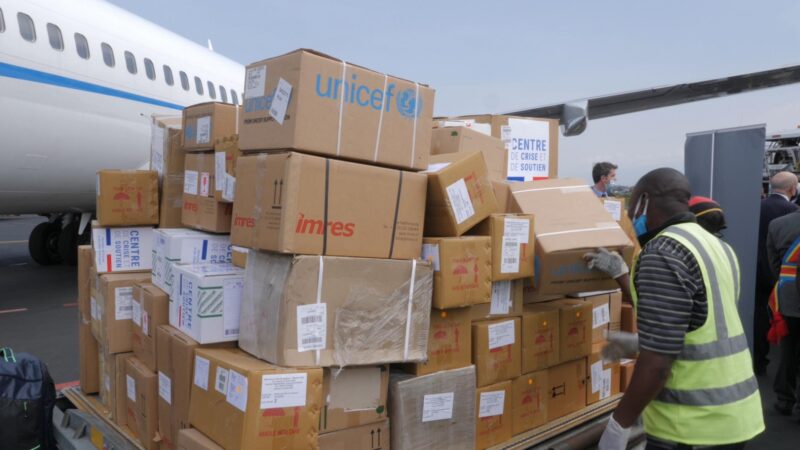Kibali Gold’s Covid-19 Support in Haut-Uele Province
WHO’s North Kivu and UNICEF offices in Bunia have provided Haut-Uele province with medical equipment to help fight the Coronavirus pandemic (Covid-19). Provincial Health Minister Norbert Mandan thanked partners who support Haut-Uele to address this global epidemic.
“You know that we are facing a health emergency that requires us to lobby our technical and financial partners. For the time being we have received assistance from mining company Kibali Gold Mining which has made available to our response team blankets, tents, mattresses, beds, sheets and other goods. UNICEF Bunia’s sub-office, which has just provided us with prevention and control equipment, medicines and other medical equipment. In addition to this, we also welcome the support of WHO Goma’s office which has sent us protective equipment including thermoflashes and hydro-alcoholic gels,” he said.
These materials, all of which are currently housed in the Watsa Health Zone, will be deployed as soon as possible to various health areas across the province, including the positive case treatment center in Aungba.
Besides, the Minister of Health has expressed the hope that the provincial government will be supported financially in the fight against this pandemic.
“Having the equipment is an important element, but we also need the financial means to carry out a number of activities including the payment of hired agents, personnel, purchases of other emergency goods. The provincial government is fighting to mobilize resources. The provincial government has already provided 100 million CF for pandemic response activities, but we need more than that,” added Norbert Mandan.
The cumulative number of cases since the beginning of the pandemic on 10 March in the DRC has 7,189 cases (one probable) including 176 deaths (one probable) and 2,317 cured.
The 14 provinces affected are: Kinshasa (6,323 cases), Kongo Central (325 cases), Haut-Katanga (222 cases), South Kivu (145 cases), North Kivu (115 cases), Lualaba (22 cases Tshopo (12 cases), Haut-Uele (11 cases), Kwilu (4 cases), Sud-Ubangi (3 cases), Ituri (2 cases), Ecuador (2 cases), Kwango (1 case) and Haut-Lomami (1 case).





